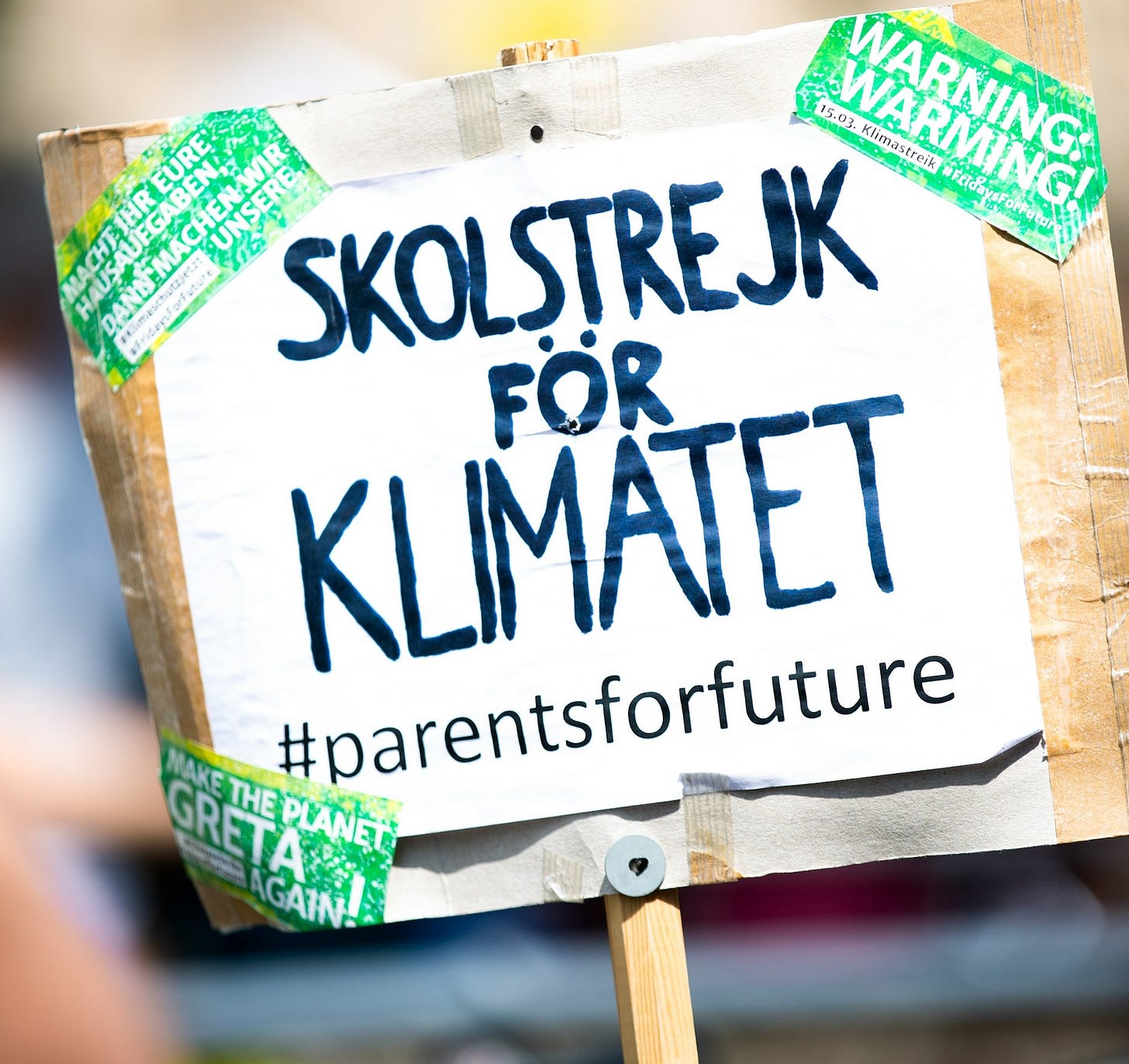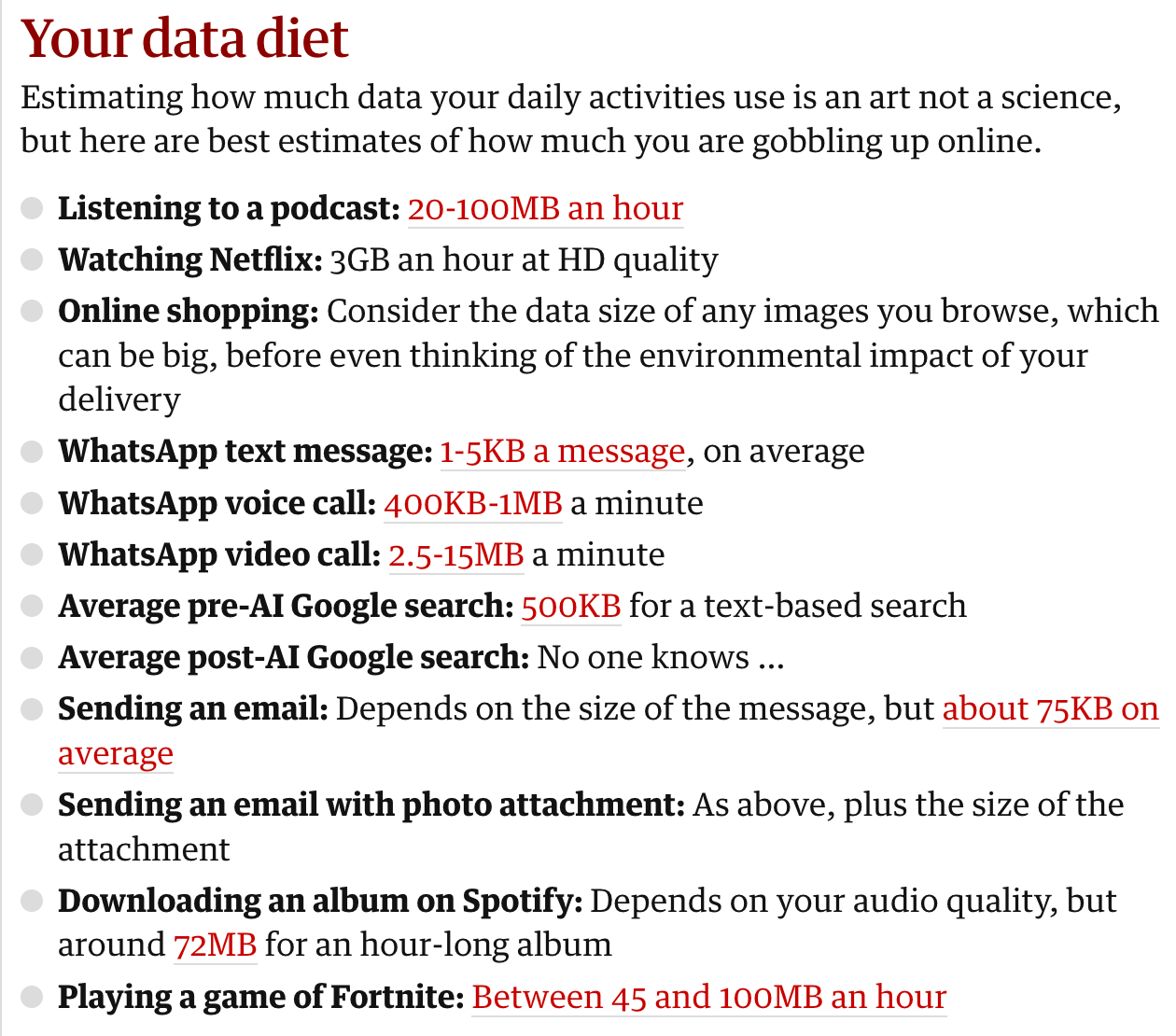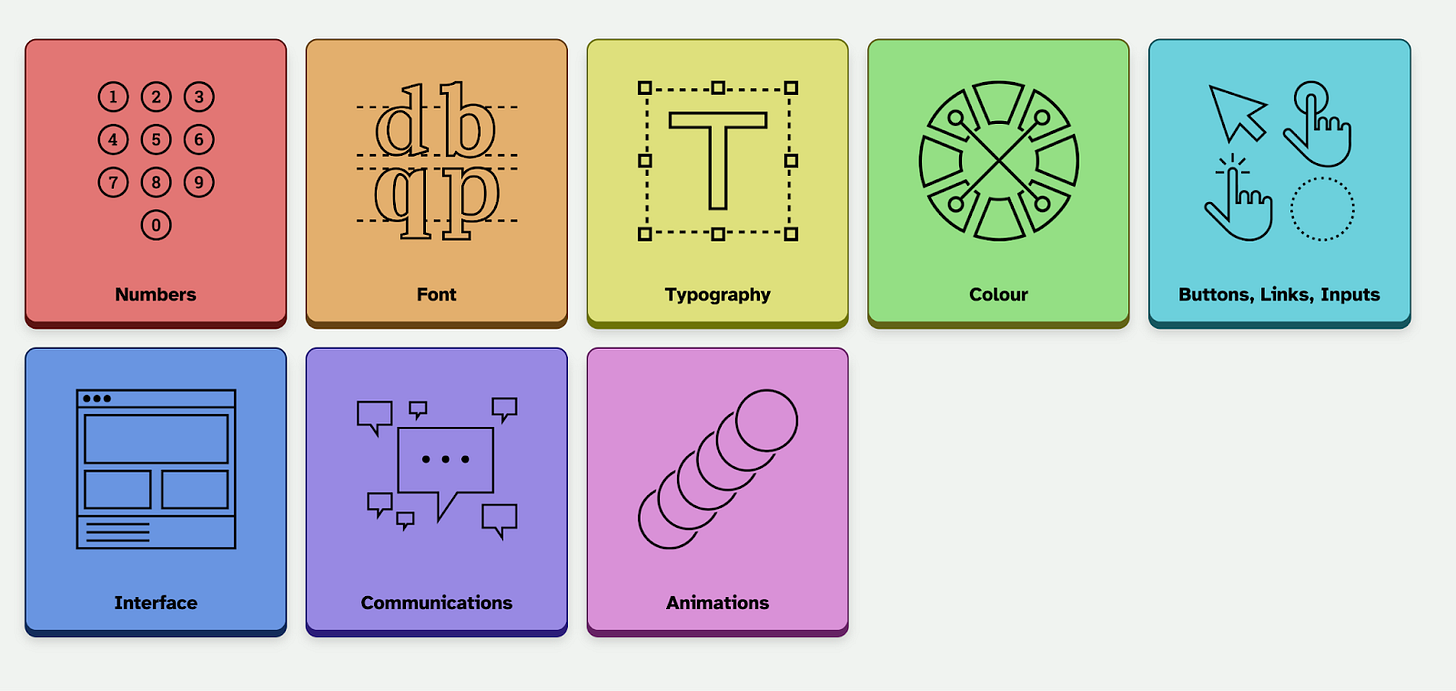Do you need a data diet?
AI and the climate emergency, Google's new AI tool for learning, teachers' lack of AI learning, neurodiversity and UDL, St Pauli and X, photo guessing game, and much more....
What’s been happening

With COP 29 underway, we thought it was time for a brief roundup of some of the info we’ve featured recently on the environmental impact of digital tech, plus a reminder of some of the things we can do to try to mitigate the impact of our own tech use.
Data centres – the huge, energy-hungry estates containing the servers that store the data we use – are the current concern. Google’s greenhouse gas emissions have risen 48% in the last five years, and 13% in the last 12 months, mainly due to increased data centre use to service its AI needs. In the US, the demands of data centres are keeping coal-burning generators going, and Google is now buying its own mini nuclear reactors in an attempt to keep pace with the voracious energy requirements of AI. The use of water for cooling servers is well documented and adding to the controversies around where data centres are located: Google’s planned data centre in Uruguay, which recently suffered its worst drought in 74 years, would require 7.6 million litres per day, sparking widespread protest. But it’s not just about water. The AI boom rests on billions of tonnes of concrete, which is a major contributor to climate change. Last year, Microsoft’s carbon emissions jumped by over 30 percent, primarily due to the materials in its new data centres.
Can anything be done? On a policy level, a new report on the environmental impact of edtech advocates for integrating sustainability into the edtech ecosystem, and there does seem to be increasing awareness of this imperative. On a personal level, this quick checklist still holds good:
Think before you click – avoid firing up generative AI for simple answers
Clear the virtual clutter – delete those photos
Minimise cloud storage
Keep devices for as long as possible (mending a smartphone just once can save more than 77kg of carbon emissions)
These actions are all things that teachers and schools can consider, as well as including the climate implications of AI in AI literacy lessons. When we previously covered this topic here, we mentioned the Jisc report by Scott Stonham, Exploring digital carbon footprints, on the hidden environmental cost of the digital revolution and the steps universities and colleges can take to address it. While the report is from 2022 and so its focus is on digital carbon impacts in general rather than AI specific, and on the tertiary sector, there’s still a lot in there for schools and individuals. For example, there is advice on choosing video call providers (Teams, Zoom, Google Meet etc) based on their carbon emissions and notes that one of the quickest and possibly easiest areas for improvement is email signatures and minimising unnecessary attachments, including images in signatures.
More recently, the Guardian tried to assess the carbon footprint of an average day of emails, WhatsApps and more, and has a handy ready reckoner of how much data our daily activities use:
AI roundup
Learn about Learn About
Not yet available in the UK but worth keeping an eye on, Google has introduced Learn About, a new AI tool designed for learning. Unlike chatbots like Gemini or ChatGPT, it’s built on Google’s LearnLM model for education, which aligns with educational research to support how people learn. Learn About provides more visuals and interactive features, making information easier to understand and retain.
Training lagging
Last week we highlighted Educate’s Beyond the Hype report, which looked at English schools and found that only 30% of institutions report have an AI policy or strategy in place, underlining a critical lack of formal AI guidance, and that training and CPD are key: schools with AI-focused CPD programmes are positively correlated with the clearer identification of educational goals for AI use and higher AI use by teachers. Those findings are echoed in a new US survey from EdWeek Research Center. It found that the majority of US teachers receive little CPD on using AI (58% of teachers still have no training two years after the release of ChatGPT) and only 2% of teachers say they use it a lot – no change from 11 months ago.
People powering AI
In this BBC Radio 4 programme, Mark Graham, Professor of Internet Geography at the Oxford Internet Institute, uncovers the hidden human labour powering AI. His study, based on hundreds of interviews and thousands of hours of fieldwork, is the first to tell the stories of this army of underpaid and exploited workers.
Translators ‘build bridges’
Last week we reported the decision by Veen Bosch & Keuning, the largest publisher in the Netherlands, to trial the use of AI to assist in translation of commercial fiction. This Guardian story delves a little deeper into some of the potential issues, with a focus on video games and educational language learning games.
What’s an AI agent?
This nine-minute video offers a simple explanation.
Quick links
Thanks to Cliff Manning for sharing the Neurodiversity Design System in his More Than Robots newsletter. It’s a developing body of work by Will Soward and is a coherent set of standards and principles that combine neurodiversity and user experience design supporting Universal Design for Learning
The most recent results from the 2023 International Computer and Information Literacy Study (ICILS) reveals a complex landscape of digital literacy across 35 education systems internationally – and a widening digital divide and significant gender differences
Parent Zone has nearly £1m in funding from Nominet for a new three-year project to better understand and address Child Financial Harms, which children are often faced with online where they are exposed to phishing attempts, pseudo-currencies, fraud, to huge pressures (thanks to the design of online games) to make purchases
A new institute set up by education experts wants to take the classroom evidence revolution into national policymaking
Up to 20,000 more primary pupils’ data may have been stolen in a cyber-attack on the government outsourcer Capita
If, like football team St Pauli (oh, and the Guardian) you’ve reached the end of your tether with X/Twitter this week, then Rachel Coldicutt, and many others, recommends Bluesky
We’re reading, listening…
Education Technology Society podcast: Dan Krutka from the University of North Texas is on a mission to support students, teachers and parents to think critically and make informed decisions about the digital tech in their lives. He talks to Neil Selwyn
MIT Tech Review: the tools Glaze and Nightshade are giving artists hope that they can fight back against AI that hoovers internet data to train. Are they enough? A look at the AI lab waging a guerrilla war over exploitative AI
Politico: this is pre election results but still interesting – an interview with former Trump adviser and Russia and security expert Fiona Hill in which she explores the relationship between Musk, Putin and Trump and why US tech billionaires are becoming oligarchs.
Give it a try
Timeguessr
If you need a quick break from the woes of the world, Timeguessr Daily is a fun little game that tests your geography and history skills. Look at a photo (and really look – you’ll find you’re poring over it for all the little details and clues) and try to match it to a year and location.
Connected Learning is by Sarah Horrocks and Michelle Pauli




